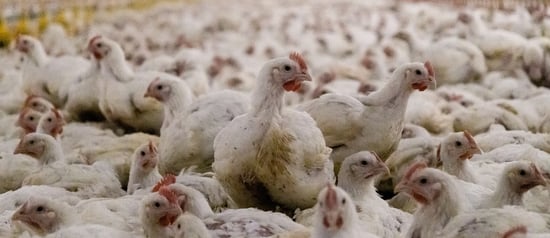
Planton Farm shows a better way beyond cruel factory farming
Blog
In the rolling countryside of Shropshire, Planton Farm—run by Clare Hill and Annie Rayner—is proving that farming can work in harmony with animals, people, and the planet. Their pigs, chickens, and cattle live in ways that put welfare and sustainability first.
At the heart of Planton’s work is holistic planned grazing—a system that works with nature instead of against it. They’ve introduced simple but powerful ideas that other farms could follow:
Mobile chicken arcs
Instead of being confined to fixed sheds, Planton’s chickens live in small, moveable arcs that are shifted regularly across the fields. This gives birds constant access to fresh grass and insects, while their manure naturally fertilises the soil. It’s cheaper than building permanent sheds and even helps break up cow manure to reduce flies.
A chicken-friendly food forest
Rows of fruit and nut trees, with space for chickens to roam beneath, create shade, shelter, and natural food sources. This reduces reliance on imported feed and gives chickens the chance to forage as they would in the wild—scratching, pecking, and exploring.
Dual-purpose chickens
Unlike factory farms, where birds are bred only for eggs or meat, Planton raises dual-purpose breeds. This reduces waste, supports higher welfare, and means birds live longer, healthier lives outdoors.
Planton doesn’t sell directly to the public yet, but there’s growing demand for food from farms like this—places where animals live freely, with space, fresh air, and the chance to express natural behaviours.
The contrast with factory farms couldn’t be starker. On industrial farms, animals are packed into sheds, mutilated without pain relief, and denied any semblance of a natural life. This model treats animals as machines, rather than living beings.
There is a better way. Pioneer farmers like Clare and Annie are leading the shift towards higher-welfare, nature-friendly farming—but they need government support to grow. With the right policies, Britain could move away from cruel factory farming and towards a future where good food, healthy animals, and thriving nature go hand in hand.
Call for an end to cruel factory farming
Sign our petition to the UK government and let them know that there is no future for factory farming.
